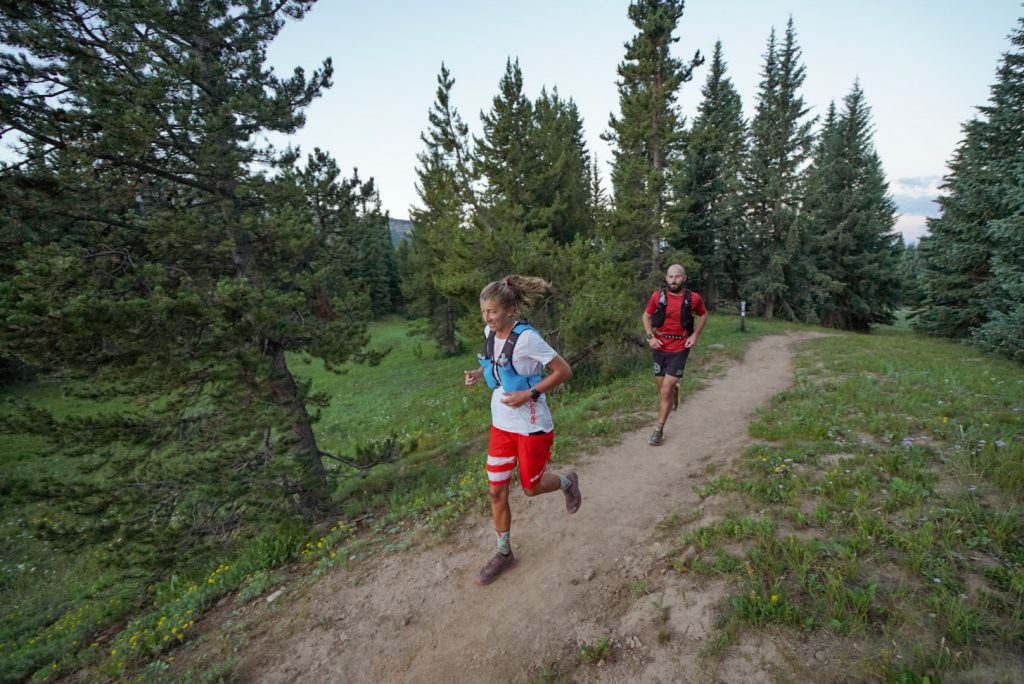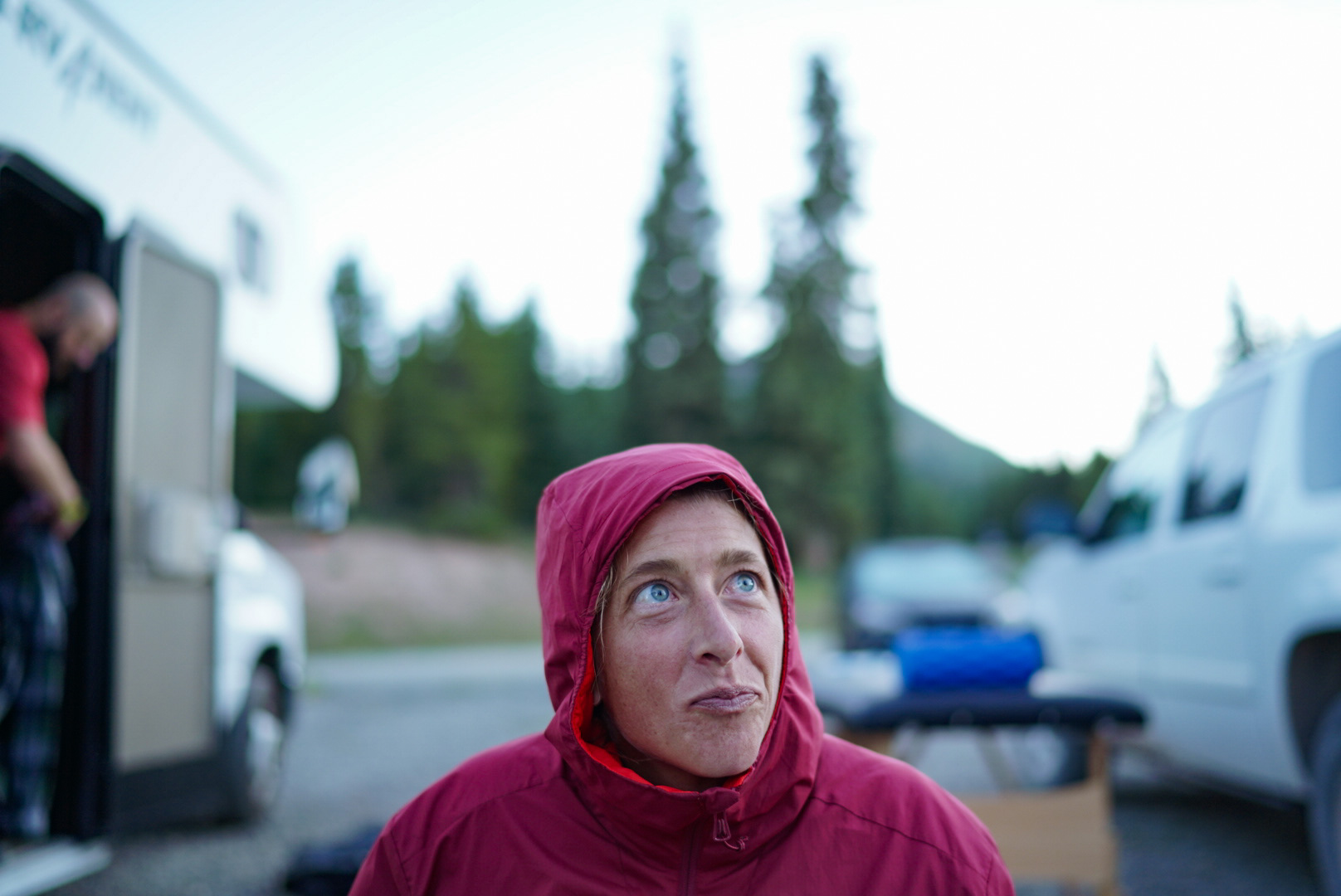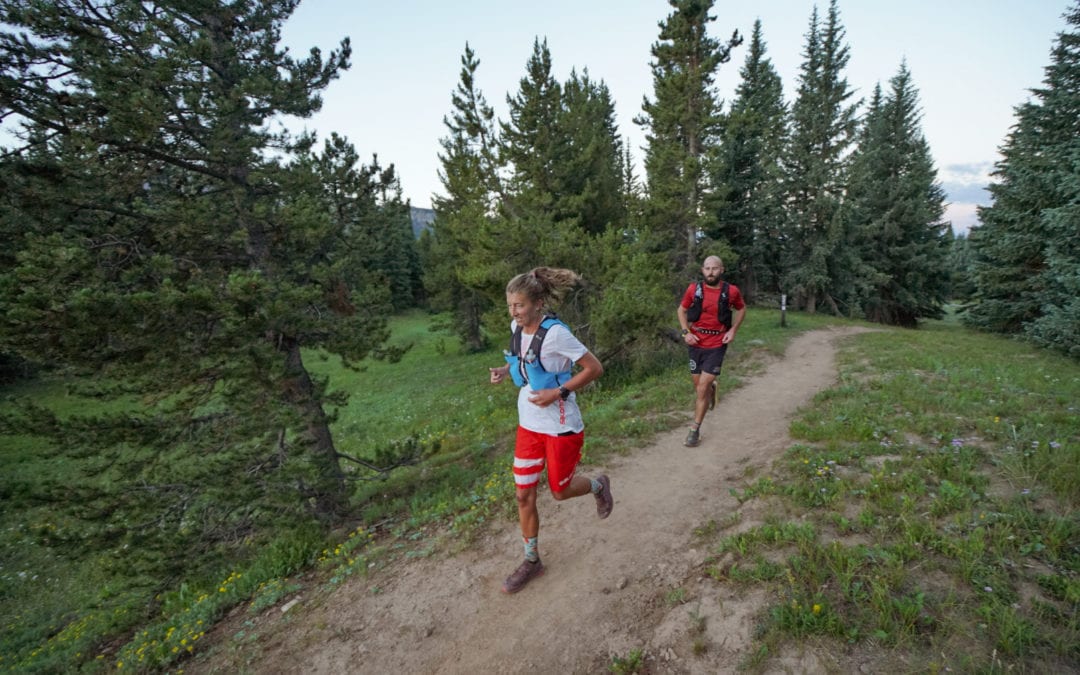
The 490-mile Colorado Trail (CT) traverses Colorado from Denver to Durango (though it can be run in both directions), and passes through six National Forests, six Wilderness areas, traverses five major river systems and eight of Colorado’s mountain ranges.
Starting Wednesday, August 5, the decorated ultrarunner Courtney Dauwalter, 35, of Golden Colorado, is taking a crack at this iconic trail’s Fastest Known Time, or FKT.
There are actually four valid routes that an FKT seeker can take on the CT. Runners and hikers can either start in Denver or Durango, or swing either west or east through the Collegiate Peaks section. Dauwalter will be tackling the Durango to Denver route that goes west through the Collegiates. The time to beat is 8 days 30 minutes, set by Bryan Williams, an ultrarunner who has completed the Grand Slam of Ultras, in 2017. The “Collegiate West” option is a tad longer than the East route, and adds a few miles and a few feet of elevation. This route has over 90,000 feet of climbing, which is around three times the elevation of Mount Everest from sea level.
For ultrarunning fans, this is Christmas. Rather than a mere 24 hours on the Western States or Hardrock Course, virtual spectators can track Dauwalter for a full week (including a live comparison to the previous record, for added suspense!). Cheering for Dauwalter feels like cheering for the Colorado Trail itself, that it can get the attention it deserves as an aesthetic artery and forge for ultrarunning history.

The CT was first conceived in 1973 when a magazine writer published a feature asserting that there should be a great trail to traverse the mountainous regions of Colorado. Due to a lack of volunteers, broken agreements and budgetary issues, the trail wasn’t completed until almost a decade later, earning it the nickname “The Trail To Nowhere.”
The first recorded FKT on the trail dates back to 1988, when friends,, and crossed the trail in 17 days, taking the west to east, Collegiate East route. Since then, notable FKTs have been set by well-known trail runners Buzz Burrell, Hal Koerner and Joe Grant just last year.
The quadruplet of routes available makes this a particularly slippery FKT, as a runner can complete the route in any direction, and with whatever Collegiate Peaks variation they choose. Once they’ve picked a route, runners can complete it in whatever style they choose, supported, self-supported or unsupported.
A supported effort, like Dauwalter’s, means you can receive outside aid and pacing while on the trail. Dauwalter’s husband will be trailing her in an RV, decked out like a mobile aid station where she’ll be able to sleep and eat throughout her attempt. In order to count for an FKT, supported efforts must be faster than the unsupported record.
Self-supported efforts mean that runners can cache water or food for themselves, buy things along the way or get aid from other trail users. Most long thru-hiking routes are done self-supported. To get credit for a self-supported FKT you also have to beat the fastest unsupported time. Unsupported efforts mean you must be wholly self-reliant and carry all your gear and supplies without outside assistance or pacing.
FKTs are also broken down by gender, and allow runners to self identify as male, female or non-binary for their attempt. To this date, only two women have registered FKTs on the CT in any direction, and Dauwalter has set her sights on the overall FKT, regardless of gender. This isn’t the first time Dauwalter has sought to beat the boys—she has racked up a first overall finish at the Moab 240 in 2017, and second overall finish at the Tahoe 200 in 2018.
Dauwalter’s dominance in the sport is reflected in wins across varying distances and terrain, including, in 2018, winning the Western States Endurance Run, considered to be the most competitive, and one of the fastest 100s in the U.S., as well as a win at UTMB in 2019, solidifying her as a competitor in the mountains and on the world stage. Though she had gone into the summer with hopes to run Colorado’s famous Hardrock 100 (which was canceled in June due to COVID-19) it will surprise few that she decided to channel her fitness into leaving a mark on her home state’s greatest trail.

If she meets her goal, this will be Dauwalter’s first FKT.
To keep record pace, Dauwalter will be running around 100K or 60 miles per day, stopping only to sleep in the RV at night. To comply with local COVID-19 guidelines in the counties she’ll be crossing, Dauwalter has a bare-bones crew consisting of primarily her husband, and ultrarunner and videographer Jamil Coury who’ll be filming the attempt for Salomon.
Zoë Rom is Assistant Editor at Trail Runner and produces its DNF podcast. She enjoys long runs in the mountains and making pizza at altitude.
The post Courtney Dauwalter Just Began An Attempt To Break The Coveted Colorado Trail FKT appeared first on Trail Runner Magazine.
This content was originally published here.

